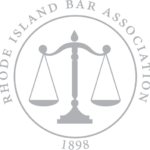 In Rhode Island, are you required to disclose all of your property when filing for Chapter 7 bankruptcy?
In Rhode Island, are you required to disclose all of your property when filing for Chapter 7 bankruptcy?
In a word: Yes.
A Chapter 7 Bankruptcy exists to protect you and your property. However, to receive a discharge of debt, you must disclose all of your assets.
During the bankruptcy process, a debtor will be asked if he is telling the truth. Bankruptcy lawyers will even use the phrase “under penalty of perjury” to remind a client that hiding assets is a violation of federal bankruptcy law punishable by jail.
You see, under Rhode Island bankruptcy law, it makes no difference if:
- Your property came as a gift or through inheritance
- Someone else paid for it
- It is easily hidden and there is no paper trail
Your bankruptcy petition must fully list all of your property.
Understand that the US Trustee has many tools to discover hidden assets. Even calls from “anonymous tipsters” help trustees make sure that a debtor is not attempting to conceal assets.
Disclosing all property to your bankruptcy lawyer is actually in a debtor’s own best interest. Telling your lawyer the complete truth will help him protect you and your property.
Common property interests that require complete disclosure in your Rhode Island bankruptcy petition:
- Any claims you have for money, including personal injury claims and potential lawsuits
- Gifts you may have received
- Assets you disposed of in the last 4 years
- Possible inheritance interests after someone has died
- Bank accounts/ real estate owned by parents with your name on it
- Property you may receive in a divorce settlement
- Personal debts owed to you by a friend or family member
Most who file bankruptcy are honest, hardworking people who have run out of options. Having a debtor list all his property in a bankruptcy petition makes the system fair for everyone.
Bottom line: your bankruptcy petition must be complete, accurate, and truthful. Don’t leave out any property.





